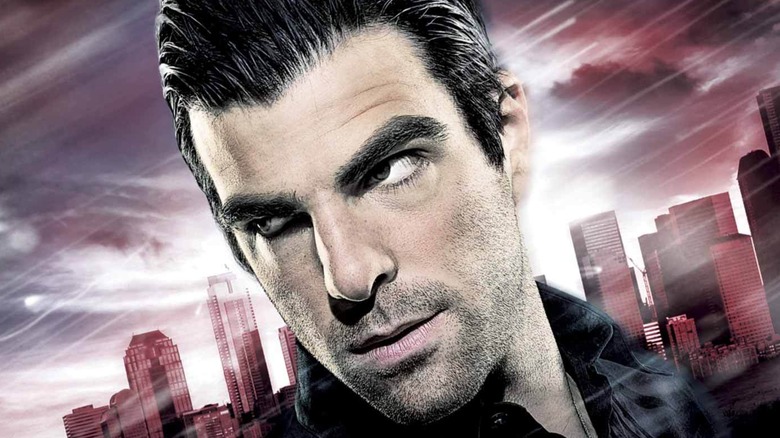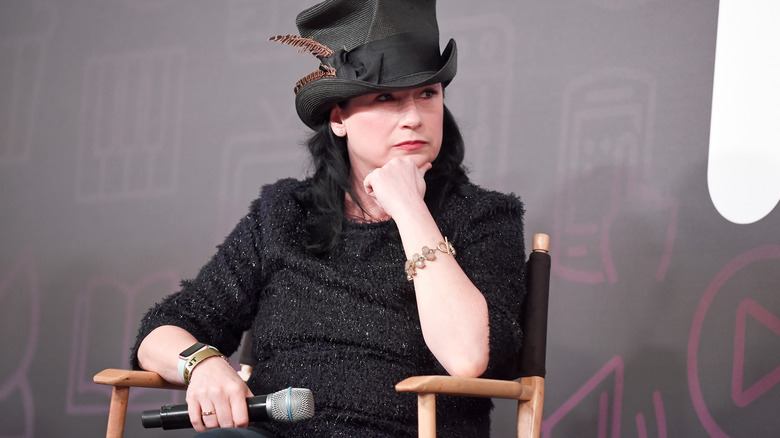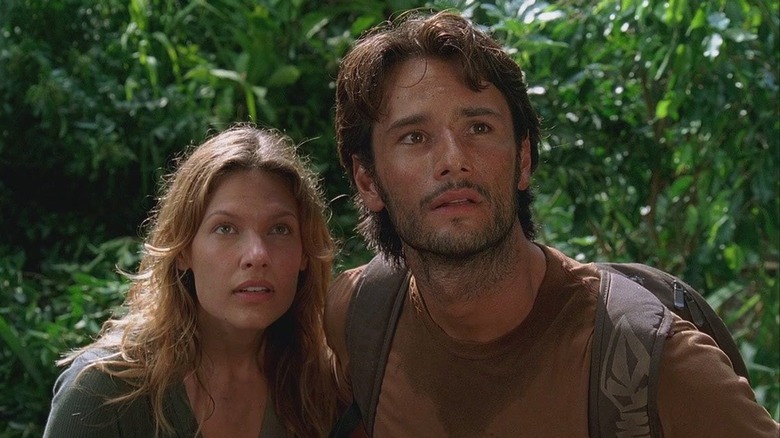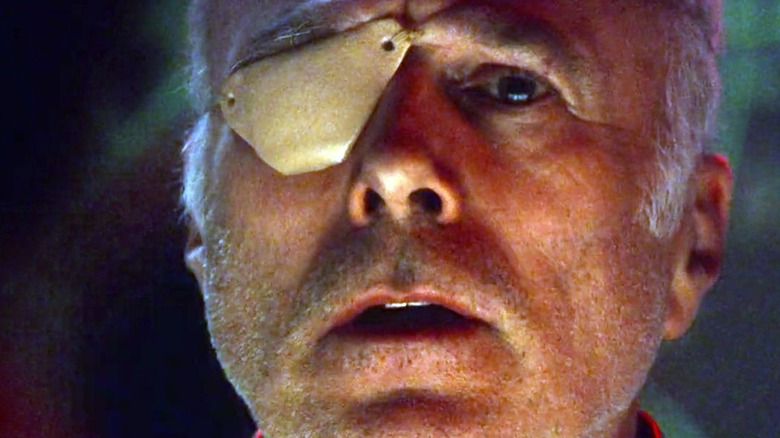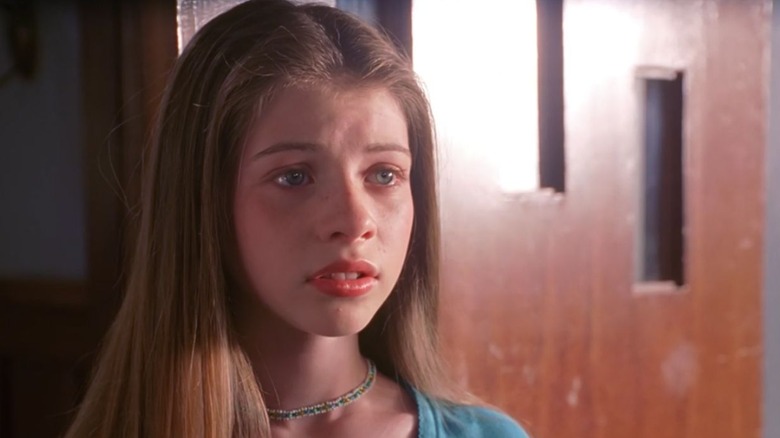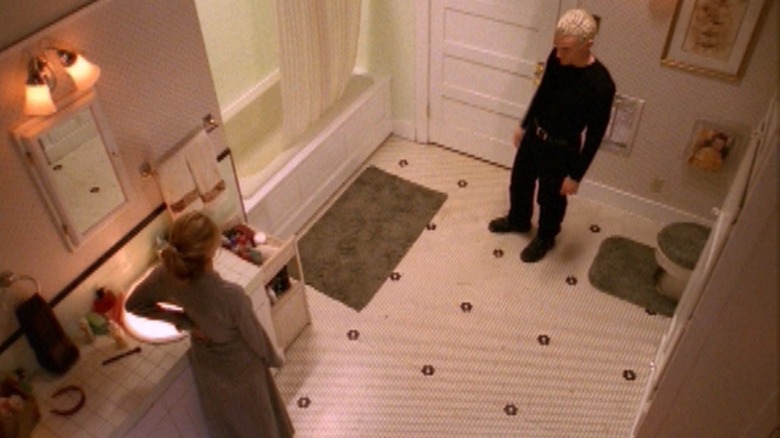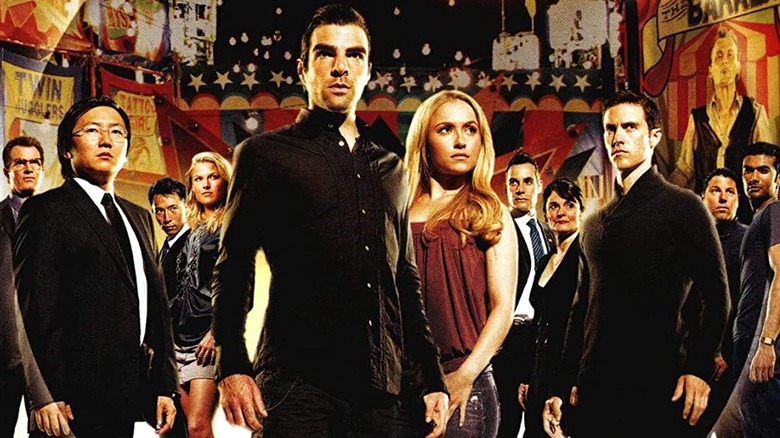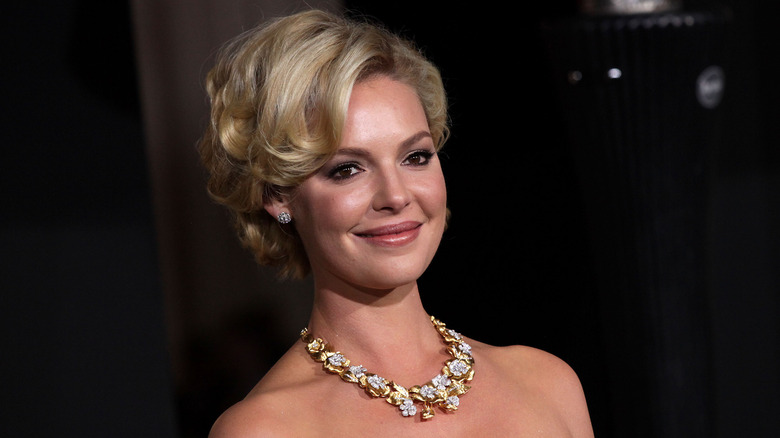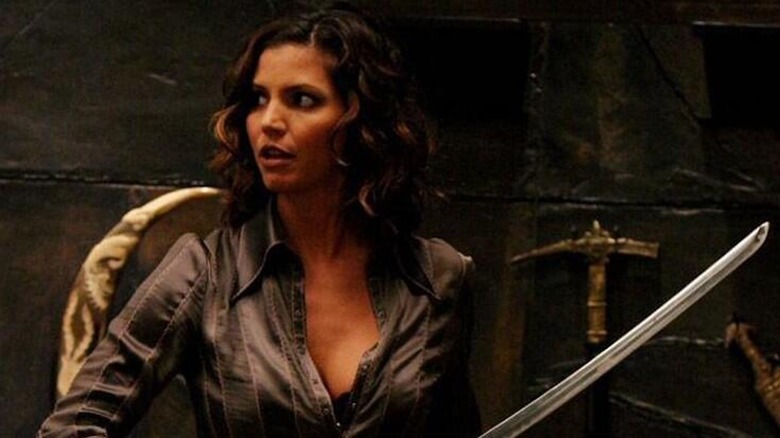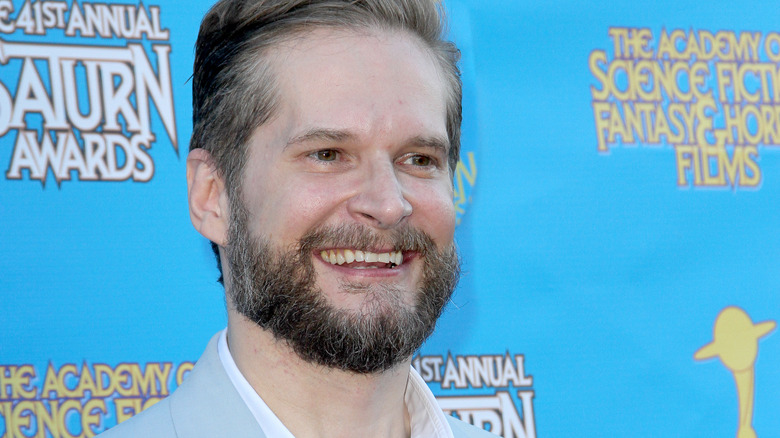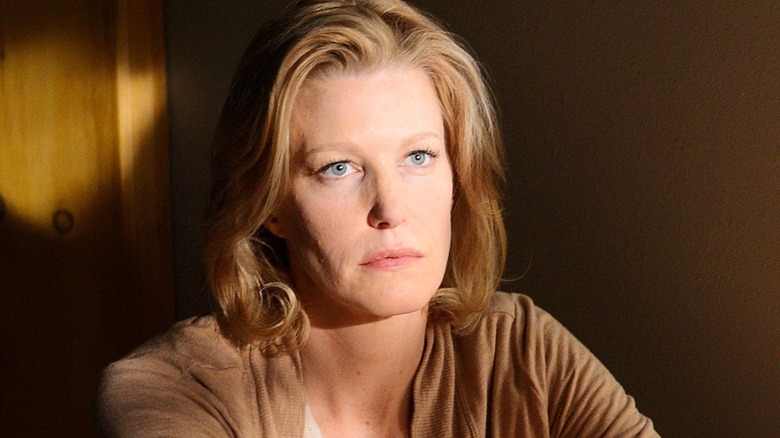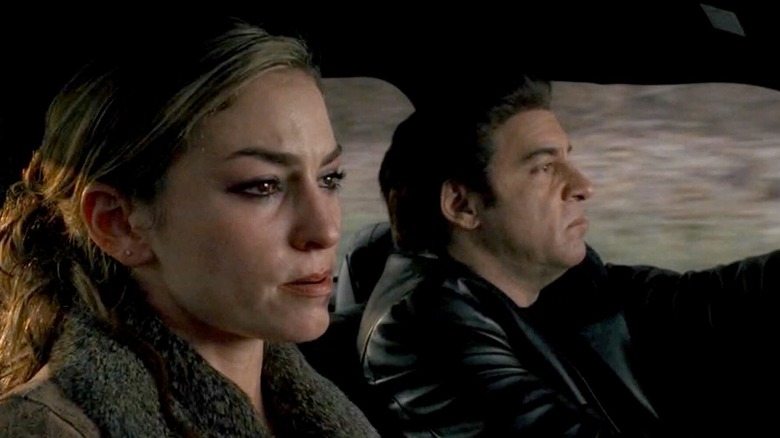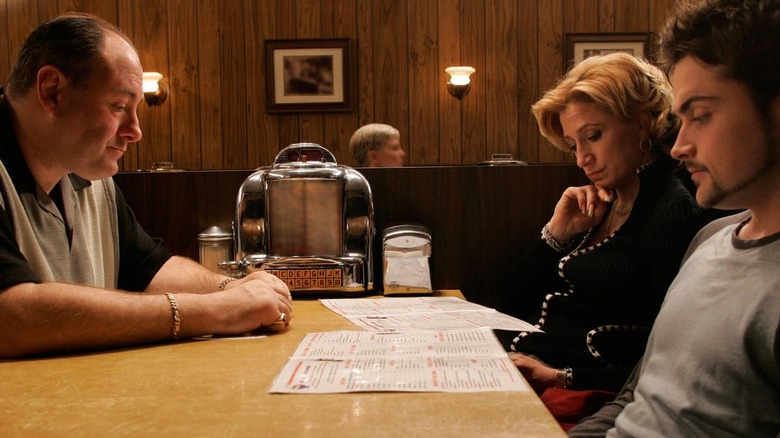Times '00s TV Shows Outraged Fans
Ah, the 2000s. It sure was a decade.
The United States entered its high-anxiety, extra militaristic post-9/11 period. Superhero films started down their path to global box office domination. Steampunk was a thing. Brief revivals of virtually every antiquated form of guitar-based pop music — including rockabilly, Appalachian folk, and new wave — made the rounds of the independent music circuit. It was weird.
For the most part, the years between 2000 and 2010 were deranged and upsetting — unless you really like watching TV, in which case they were terrific. A so-called Golden Age of Television that began with the first season of "The Sopranos" in 1999 carried on with cable dramas that unfold like classic novels, such as "The Wire," "Mad Men," and "Six Feet Under." Meanwhile, slightly less critically revered but nevertheless influential programs like "Lost" and "The West Wing" bolstered the general notion that a Golden Age was also occurring on network TV.
With that much top-tier TV happening all at once, audience members were bound to get outraged when things went wrong — or didn't go the way certain fans expected or wanted them to go. Read on for some infamous examples of times '00s TV shows outraged fans.
Major spoilers ahead for "The Sopranos," "Angel," "Buffy the Vampire Slayer," and "Battlestar Galactica."
Amy Sherman-Palladino leaves "Gilmore Girls"
Considering how much the show's streaming rights must be worth today, it seems absurd, but in 2006, a major television network decided "Gilmore Girls" wasn't worth spending money on.
During the production of Season 6, contract negotiations between network executives and the showrunner duo of creator Amy Sherman-Palladino and Daniel Palladino fell apart. According to Entertainment Weekly, the WB — in the process of merging with UPN to become the CW at the time – wouldn't budge on hiring more writers and a staff director, or offering the wife-husband team the peace of mind of a two-year contract.
Without its creative progenitor to guide it, "Gilmore Girls" swiftly crumbled into a humorless parody of itself, and the CW announced its cancellation before viewers saw the conclusion of Season 7. Judging from a Reddit thread devoted to hashing out the various foibles of Season 7, fan takes on the final network television year of "Gilmore Girls" range from acquiescence — an "it could've been worse" mode of thinking — to intense loathing and outrage.
It appears Sherman-Palladino's knack for sharply rendered characters and snappy, culturally savvy dialogue were too essential for "Gilmore Girls" to function without. Luckily, the real final season of "Gilmore Girls" transpired via the Netflix revival miniseries "A Year in the Life," which premiered in 2016.
Season 3 of Lost gets off to a troubling start...
Almost immediately upon "Lost" beginning to unfold in 2004, viewers started wondering if the creative team behind the plane crash/supernatural island-based drama were just making stuff up as they went along. Unfortunately, the first handful of episodes in Season 3 lend a lot of credibility to that theory.
While it undoubtedly contains its moments, the first half of Season 3 spins its wheels and flings mud everywhere until jumping back onto the road with its 10th episode, "Tricia Tanaka is Dead."
And we can't blame it on showrunner Damon Lindelof. According to him, the original structure for "Lost" was based on a set of introductions and solutions to mysteries that would've been mostly tied up by the start of season 3. "We were saying, 'We wanna have this stuff answered by the end of Season 1, this stuff answered by the end of Season 2, and then the show basically ends after about three years,'" he told Collider in a 2020 interview. "That was the initial pitch, and they were not even hearing it."
So if you're a "Lost" fan who's outraged about how much of your time the series wasted, your beef is with ABC, not the showrunners.
Everyone is a Cylon on Battlestar Galactica
Trend stories in the style sections of newspapers did not start declaring nerd culture "cool" until the late '00s; which makes the Sci-Fi Channel's 2004 remake of the late 1970s cult classic "Battlestar Galactica" arguably the final piece of live-action science fiction media that was wildly popular and simultaneously marginalized by the zeitgeist.
A 2015 Entertainment Weekly article excavating the polarizing series finale from 2009 suggests that the stigma surrounding serious(ish) sci-fi never quite lifted, which is why Golden Age of Television discussions tend to gloss over the provisionally outstanding cosmic drama. Nevertheless, while most folks didn't watch "BSG" in the 2000s, the folks who did got plenty intense about it.
Predictably, the series finale stands as the most sensitive moment. But we theorize that if "BSG" fans are thoughtful and honest, they'll tell you the final episode of Season 3, in which four major characters are randomly revealed as faux-biological human replicants called Cylons, is where the show begins its descent into the septic tank. "I can't talk about ... [the Season 3 finale] "Crossroads, Part II," without wanting to crawl under my desk and mourn and then yell at all of you and then punch myself in the face," writes Mark Oshiro on the Mark Watches blog.
We can't repeat most of Oshiro's (somewhat positive?) recap on a family-friendly website. He's probably right about the implausibility of "All Along the Watchtower" existing in the "BSG" universe, though.
Dawn arrives on Buffy the Vampire Slayer
In the classic "Simpsons" episode "The Itchy & Scratchy & Poochie Show," long-running cartoon "Itchy and Scratchy" introduces Poochie — an instantly hated new character designed to boost slumping ratings. Dawn Summers (Michelle Trachtenberg) can't rap or skateboard like Poochie, and we have no idea if ratings had anything to do with her introduction, but she is definitely the Poochie of "Buffy the Vampire Slayer."
This is strange, because if anyone from "Buffy" mirrors Poochie as a mid-series addition who tries too hard to be edgy, it's clearly Faith the Vampire Slayer (Eliza Dushku). But "Buffy" viewers generally don't seem to mind Faith. Dawn, meanwhile, inspires so much fandom-wide irritation that major outlets were still discussing the matter more than a decade after "Buffy" closed production in 2003.
Dawn plays a significant part in "Buffy" mythology, so even if she's one of television's most annoying teens ever, it's hard to muster up the same Dawn-based outrage we felt in 2000 now that she's a baked-in aspect of an all-time favorite series. Also, she's not actually the worst character on "Buffy." Clearly, that title belongs to Riley Finn, who everyone kind of forgets about despite being the main character's love interest throughout the entire fourth season.
Spike assaults Buffy
"Buffy the Vampire Slayer" exists in a fantasy world and routinely deploys metaphors when it wants to addresses reality. That's part of why it's popular. But the balance between supernatural elements and everyday nightmares goes off-kilter late in Season 6. Spike (James Marsters) attempts to sexually assault Buffy (Sarah Michelle Gellar) in a scene that, some viewers say, was presented far more graphically than necessary.
There's oodles of violence throughout "Buffy," but it's almost entirely choreographed fight scenes and artificial blood and guts that audiences instinctively dismiss as hella fake. Joss Whedon and co. decided to remove those psychological buffer zones for this particular attack. Marsters describes the process of shooting the scene the "hardest day" of his career in an interview with The A.V. Club but says it ultimately serves the show by reestablishing Spike as a villain.
Our guess is Marsters was too classy to speak ill of "Buffy" in the 2017 press, but we offer that Spike is really more like an antihero than a villain most of the time. As SyFy Wire illustrates in an efficient takedown, within the broader context of "Buffy," what we see is a beloved, often heroic character attempting to rape our protagonist, which is a baffling choice for any show.
If you or anyone you know has been a victim of sexual assault, help is available. Visit the Rape, Abuse & Incest National Network website or contact RAINN's National Helpline at 1-800-656-HOPE (4673).
Heroes Season 4 is very bad
Maybe it's unfair to single out the fourth and final season of "Heroes," since the once-fanatical audience for creator Tim Kring's uneven sci-fi drama had been getting perpetually cranky as of the onset of season 3. The second year of "Heroes" certainly fell short of the standard set by the first, but considering the 2007 writers' strike, it had a good excuse. We cannot say the same for Season 3.
But as their respective responses on Rotten Tomatoes indicate, the latter two quarters of the superheroes-without-capes-or-codenames chronicles bring about roughly equal quantities of audience outrage. Despite the mighty presence of Robert Forster as Arthur Petrelli, Season 3 sinks into a maw of family and time travel convolution. And we don't even know what to make of Season 4. The plot all revolves around a circus-oriented cult whose leader swears he isn't evil, but c'mon, that's what all the evil circus cult leaders say.
None of it makes much sense, but at least NBC knew when to leave well enough alone, right?
Psyche! They did not know that!
Katherine Heigl insults the Grey's Anatomy writing staff
To say Katherine Heigl "ruined her career" by keeping it a little too real in front of the media is mostly valid, although it's probably more precise to say she diminished her own professional prospects by alienating Hollywood's off-camera creatives. Obviously, it doesn't do an actor any good to backhandedly tell a showrunner and writing staff that they're doing a bad job on a TV series when said actor's name remains prominently displayed on that show's opening credits.
But that's roughly what Heigl did in 2008. Having nabbed an Emmy for her work on "Grey's Anatomy" the previous year, Heigl withdrew her name from upcoming Emmy consideration, offering the explanation, "I did not feel that I was given the material this season to warrant an Emmy nomination." Needless to say, "Grey's Anatomy" fans did not agree with Heigl's opinion that "Grey's Anatomy" was doing a bad job. Otherwise, we presume they would've been watching a different hospital-based primetime drama.
Between the Emmy debacle, a Vanity Fair interview in which she described her hit movie "Knocked Up" as "kind of sexist," and rumors of a difficult personality, Heigl's crummy reputation made her an industry punchline for years. Recently, she's undergone a bit of a public image rehabilitation, and perhaps it's overdue. After all, while her comments might've been a little tactless, she was objectively correct about "Knocked Up."
Cordelia exits Angel under questionable circumstances
In 2021, Charisma Carpenter seemingly confirmed long-circulating rumors that Joss Whedon might as well have fired her from "Angel" for getting pregnant without his permission and subjected her to appalling behind-the-scenes treatment. But the discourse glosses over a comparatively unimportant but still noteworthy aspect of Carpenter's "Angel" departure. Her character, Cordelia Chase, appears in three seasons of "Buffy" before crossing over for four seasons of "Angel," which gave her seven years to build a fanbase by appearing on TV every week.
Viewers were mad about Cordelia's exit from "Angel" before they had any reason to believe Carpenter had been personally mistreated. "I can barley [sic] understand Joss's decision," comments an internet user self-titled "Lior Knight," responding to a Boston Herald article posted on an action figure message board in 2003. "Why would he let such a talented actress go? He didn't even bother to let her go out with dignity." "She really should have had a decent farewell, not just dismissed like this!" adds user "CaptainOates."
While "Angel" carried on without Cordelia — arguably hitting a stride right before its abrupt cancellation mid-Season 5 production in 2004 — it did so with Harmony Kendall (Mercedes McNab), another one-time vacuous Sunnydale High School student, filling the Cordelia-shaped void.
Weird that Whedon would replace Cordelia with an intellectually and morally bankrupt version of the same character, eh?
Bryan Fuller quits Dead Like Me
While the September 11 terrorist attacks cut a deep scar into the national psyche, that persistently lingering dread clashed against the materially unchanged reality of day-to-day suburban life. As a result, the 2000s developed a specific television and film aesthetic — one where the looming threat of death hangs over everyone at all times, but otherwise, things seem fine.
This very 2000s state of mind can be observed in series like "Six Feet Under," "Pushing Daisies," and "Dead Like Me." The latter two are both brainchildren of showrunner Bryan Fuller, and neither survived long enough to produce a third season. "Pushing Daisies" garnered a pile of Emmy nominations before its 2008 cancellation, so that wasn't Fuller's fault. But some "Dead Like Me" fans speculate that television's all-time greatest comedy about grim reapers might've lasted beyond 2004 if Fuller hadn't quit after the first few episodes.
"We simply did not have the ability to make the show in the way that I had imagined," Fuller told Esquire in 2015. "It was a little bit of a bait and switch where it was like, 'Oh my gosh, let's do this great show,' and then actually, 'No, we're not going to do this show that you pitched and that you wanted to do. We are going to do a radically different version of the show.'"
Skyler White disapproves of dealing meth
A person can ooze charm and charisma and always get to say the coolest-sounding lines, but none of that necessarily guarantees that they aren't literal Satan. TV audiences don't always remember this!
Mass-murdering sociopath Tony Soprano is beloved by "Sopranos" fans. "Rick & Morty" viewers require frequent reminders that awkward teenager Morty, not mad scientist Rick, is the character with whom we're supposed to relate. And members of the "Breaking Bad" faithful had a very difficult time understanding why Skyler White (Anna Gunn) may occasionally voice concerns about her husband becoming the most prolific crystal meth cook on the planet.
According to The Guardian, during the heyday of "Breaking Bad," the number of likes racked up by several Skyler White hate pages on Facebook approached 60,000. That's a lot of outrage against a character who's struggling to live a normal suburban life while her husband drags her into a world of organized crime. "At the end of the day, [Skyler] hasn't been judged by the same set of standards as Walter," Gunn writes in a New York Times op-ed in 2013 (via The Guardian).
She's incredibly correct. Walter does some pretty awful stuff, even as early as Season 2 of "Breaking Bad," which aired in 2009. Nevertheless, he's popular enough to sell "Heisenberg" T-shirts to this day, whereas Skyler's the one eating a tidal wave of online venom.
That one really unpleasant Sopranos death...
Major characters on "The Sopranos" shuffle off the mortal coil on a relatively routine basis during the gangster drama's six-season run, which started in 1999 and wrapped in 2007. Typically, these deaths might scan as "outrageous" in the literal sense, but when a character devotes most of their time and attention towards perpetuating a barbaric cycle of violence, it isn't necessarily a shocker when they're beaten to death and hacked to pieces in a bathtub.
But then there are the events of "Long Term Parking."
Described by Entertainment Weekly as "TV's most heartbreaking death" — as in all of television, ever – the execution of Adriana La Cerva (Drea de Matteo) in the fifth season's penultimate episode stands out as unjust, even compared to the many, many other murders we see on "The Sopranos."
Over the course of the series, Adriana finds herself strong-armed by the FBI into working as an informant. In "Long Term Parking," her legendarily terrible finance Christopher Moltisanti (Michael Imperioli) explains this to his ruthless fellow mobsters, who promptly arrange for Adriana's disappearance.
The roster of characters that make "The Sopranos" a singular viewing experience may be funny and colorful, but they're almost all objectively awful human beings. Adriana never directly harms anyone the audience knows about, which makes her demise a total outrage.
The Sopranos ends on an ambiguous note
If "The Sopranos" was one of your 2020 pandemic binge watches, and you soaked in the entire series within a few weeks, probably, you weren't outraged when a cut to black concludes the titular family's dinner, and the series itself. It's one of the most famous endings in TV history. Even if you avoided any other spoilers for years figuring you'd get around to watching "The Sopranos" eventually, you knew it ends when Tony Soprano (James Gandolfini) ques up Journey's "Don't Stop Believin'" on a restaurant jukebox.
But if you had showed up expecting an exclamation point, for Tony to experience some catharsis, or for literally anything to reflect the gravitas of a television landmark closing the book on itself ... well, we can understand why you might've been ticked off.
"This finale was pathetic," HBO Message Board user Mamamia22 posted at the time, according to People Magazine. Another 2007 internet user added, "There should be some sense of closure and a tying of loose ends."
These days, we have reason to suspect the blackout represents mob assassins shooting and killing Tony before he can finish his second onion ring. Emphasizing the mundanity of Tony's location at the time of his death, as opposed to the violence, reinforces "The Sopranos" as a metaphor for upper-middle-class American life and therefore makes a stronger statement than yet another bust of gunfire would've done. But fans were none too happy.
